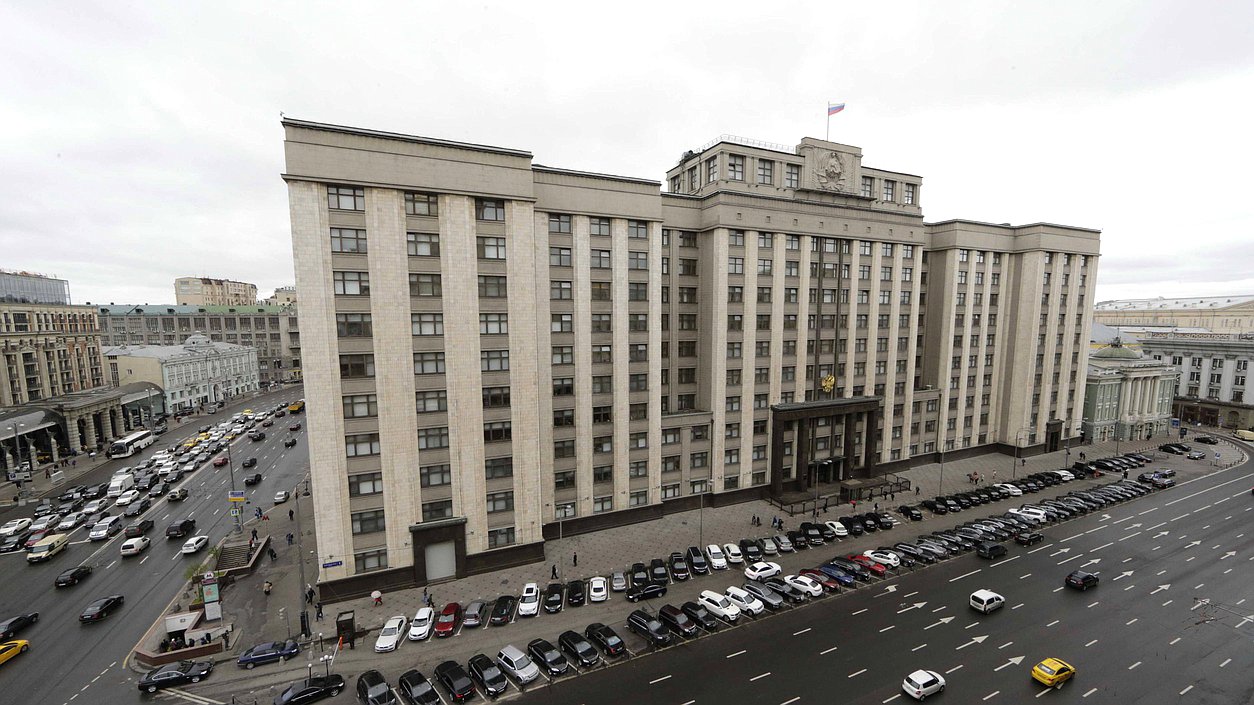
On 25 February 2022 the BSPC Chairmanship issued a statement about “the impossibility of continuing our parliamentary cooperation in the previous trusting manner with the Russian Federation due to the military attack and invasion against the sovereignty, independence and people of Ukraine.” The meeting of the BSPC Standing Committee, which was planned to be held on 28 February 2022, was canceled.
Thus, the BSPC Chairmanship, contravening the consensus principles of the structure, refused an open dialogue. The decision to suspend the dialogue was made without taking into account Russia’s point of view.
On February 28, 2022, the Russian permanent delegation to the Baltic Sea
Parliamentary Conference with its head, the Deputy Chairwoman of the State Duma
Committee on Development of Far East and the Arctic Valentina Pivnenko

Valentina Nikolaevna
, adopted
the relevant statement.
The document had been sent to the BSPC Secretariat, the BSPC Secretary General B. Bar conveyed it to all members of the organization.
The full text of the statement of the Russian delegation:
“On 25 February 2022 the BSPC Chairmanship issued a statement about “the impossibility of continuing our parliamentary cooperation in the previous trusting manner” with the Russian Federation. The meeting of the BSPC Standing Committee, previously scheduled for 28 February 2022, has been canceled.
In view of the lack of opportunity to convey our position to the partners within the framework of this sitting the Russian delegation addresses the BSPC with its own statement.
We consider the position of the BSPC President Pyry Niemi and Vice-President Johannes Schraps condemning Russia's actions, which allegedly pose a threat to peace, stability and democracy, as politicized and biased, as an example of double standards.
For thirty one years of its existence the BSPC has worked within its geographical and thematic mandate. Today, contrary to this mandate, the current Chairmanship of the Organization has allowed itself to make unjustified criticism of Russia's steps to protect our compatriots and citizens from genocide and violence by the Kiev regime.
Therefore a legitimate question arises – why a similar approach was not applied in response to massive violations of human rights, democracy, the rule of law, death and large-scale destructions as a result of NATO actions in Yugoslavia, the invasions of the United States and its allies in Afghanistan, Iraq, Libya.
For eight years since the armed coup d’état in Kiev in 2014, not a single BSPC chairmanship reacted to the criminal actions of the Ukrainian leadership and the Verkhovna Rada, the unprecedented violation of the rights of the Russian-speaking population in Ukraine, nor condemned the policy under which Nazism revived and strengthened in the country.
We are sure that you, colleagues, will be ashamed when the whole truth about these crimes is revealed.
Russia has made every possible diplomatic effort to convince its partners to fulfill the Package of measures for implementation of the Minsk Agreements of 2015, approved by the UN Security Council Resolution 2202.
Instead, Western countries, led by the USA, played along with Kiev in every possible way and ignored Ukraine's sabotage of the Minsk Agreements.
Their policy towards the militarization of Ukraine, the rupture of historical ties between our countries and peoples, the support for the actions of neo-Nazis — hardly all this can be called a contribution to the strengthening of the pan-European security.
The Ukrainian authorities defiantly rejected political and diplomatic dialogue with the Donetsk and Luhansk People's Republics, carrying out bloody crimes against civilians and attempting a final military solution to the Donbass Question.
Russia accepted tens of thousands of refugees suffering from large-scale shellings by Ukrainian forces. As a result Russia was forced to respond properly to the actions of Kiev and all those who encouraged it.
On 21 February 2022 President of the Russian Federation Vladimir Putin signed Decrees recognizing the Donetsk and Luhansk People's Republics as sovereign and independent states, as well as Treaties on Friendship, Cooperation and Mutual Assistance between Russia and the aforementioned Republics.
In accordance with Article 51, Part 7 of the UN Charter in pursuance of these agreements, ratified by the Federal Assembly of the Russian Federation on 22 February 2022, President of the Russian Federation decided to conduct a special military operation. This operation is aimed at demilitarization and denazification of Ukraine.
As for the BSPC, in the near future we will determine our position regarding Russia's participation in this Organization. The responsibility for the possible termination of parliamentary cooperation with the Russian side will rest entirely with those who put forward such initiatives.
We have always considered the BSPC as a platform to promote non-politicized dialogue between parliamentarians of the entire Baltic Sea region. Over the history of its existence the BSPC has implemented a large number of important projects in a wide range of areas related to ensuring sustainable environmental, economic and cultural Baltic cooperation. The elaboration of solutions on socially significant issues for the benefit of citizens of all member countries is among them.
Only through joint efforts concrete positive results can be achieved in the interests of the Baltic States.
We look forward to continuing a constructive mutually beneficial dialogue.”


